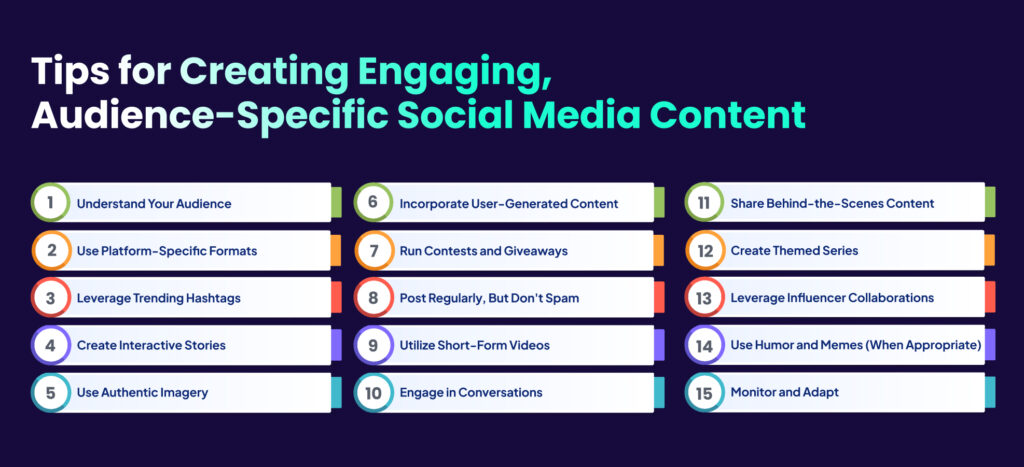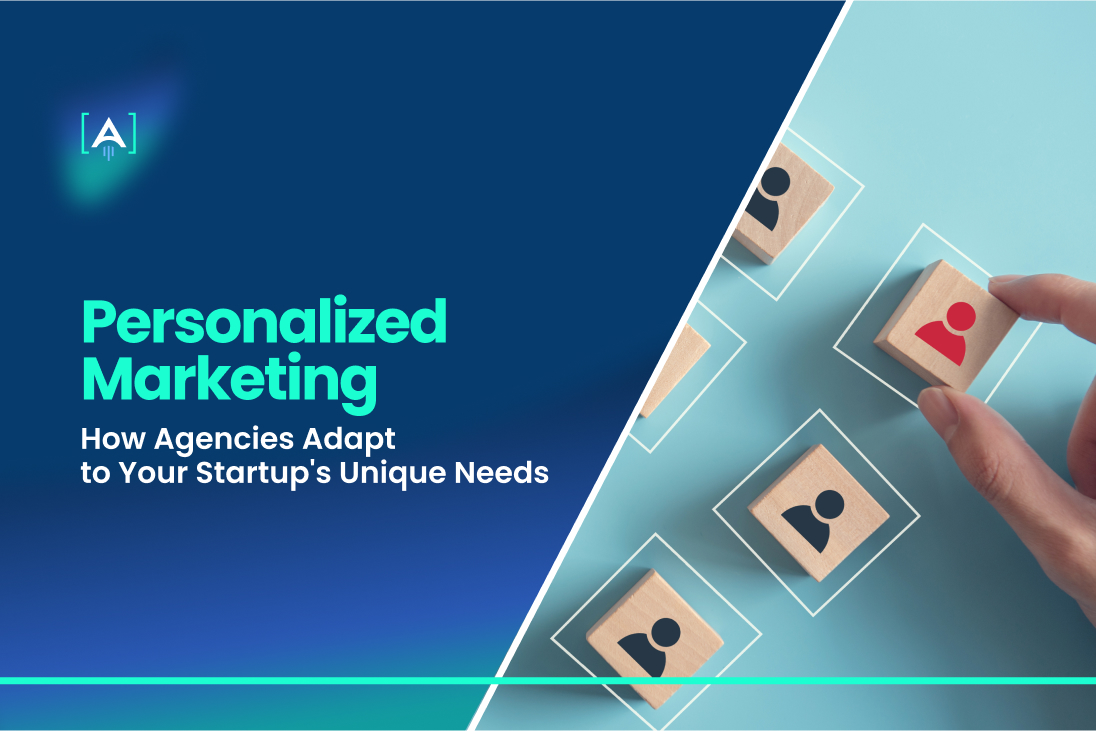The personalized marketing approach is a strategy that prioritizes users’ individual preferences, behaviors, and needs, creating messages that resonate on a personal level.
What is personalized marketing? It’s about treating each customer as a unique individual rather than a generic target audience. Businesses can deliver tailored experiences that build stronger relationships and drive conversions by understanding their specific needs, preferences, and behaviors.
89% of marketers see a positive ROI when they use personalization in their campaigns.
Every customer interaction can significantly impact startup growth. That’s why personalization isn’t just beneficial but offers a way to communicate your unique value proposition to your target audience directly.
Partnering with a growth marketing agency specializing in personalized marketing strategies can transform how startups connect with their audience.
This blog post will answer the question, “What is personalized marketing?” and cover the data-driven marketing strategies that agencies use to address your startup’s unique needs.
Understanding Your Startup’s Unique Market Position

Identifying your startup’s unique market position is key to distinguishing it from competitors.
For example, a project management tool might stand out by automating time-tracking and invoicing, saving users significant weekly time.
This unique value proposition (UVP) highlights the real benefits to your customers and is central to your marketing efforts and sales strategies.
Clearly articulating your UVP attracts those who will most value your offerings.
To understand your market position, consider these tactics:
- SWOT Analysis: Assess your startup’s strengths, weaknesses, opportunities, and threats.
- Competitive Analysis: Research competitors to identify market gaps and opportunities.
- Customer Segmentation: Segment your audience by demographics, behaviors, and needs for targeted marketing.
- Market Trend Analysis: Stay informed on industry trends to align your positioning.
- Positioning Mapping: Visualize how your offerings compare to competitors on key attributes.
- Value Proposition Canvas: Map out how your product meets customer needs and addresses their pains.
- PESTEL Analysis: Examine external factors that could affect your market position.
- Benchmarking: Measure your performance against industry leaders to find improvement areas.
- Voice of Customer Studies: Collect and analyze customer feedback to refine your value proposition.
- Digital Footprint Analysis: Assess your online presence for insights into your reach and reputation.
These approaches help grasp your customers, market dynamics, and how best to position your product.
A growth marketing consultant, for example, can provide valuable insights and strategic guidance to help you refine your market positioning.
A growth marketing agency for startups can offer a comprehensive approach to market positioning, leveraging their expertise, growth mindset, and resources to drive growth.
Data-Driven Strategies in Personalized Marketing

Growth marketing agencies can uncover deep insights into customer preferences, interests, and behaviors by analyzing vast amounts of data, from browsing behaviors to purchase history.
This rich understanding allows for creating highly targeted campaigns that speak directly to the needs and desires of individual customers or specific customer segments.
How Agencies Leverage Data
Customer Segmentation
Agencies use data to divide the market into smaller segments based on shared characteristics. This enables more focused and relevant messaging.
For example, segmenting by age, location, or past purchasing behavior can tailor messages that resonate more strongly with each group.
Predictive Analytics
By employing predictive analytics, agencies can forecast future customer behaviors based on historical data.
This could involve predicting which products a customer will likely purchase next, allowing for timely and relevant product recommendations.
Personalization at Scale
Advanced data analysis tools enable personalizing marketing messages at scale.
For instance, an e-commerce retailer can send personalized email campaigns featuring products a customer has viewed but not purchased, along with similar items they might like.
A/B Testing
Agencies use data-driven A/B testing to compare various innovative marketing strategies and identify what works best for a particular audience segment.
This could be testing two versions of an email subject line to see which generates a higher open rate.
A growth marketing team within an agency plays a crucial role in executing these data-driven strategies. They collaborate closely with data analysts and marketing specialists to develop and implement personalized campaigns. A growth marketing manager oversees the entire process, ensuring alignment with the company’s overall growth objectives. A growth marketing consultancy can provide expert guidance and support in developing and executing data-driven personalized marketing strategies.
Examples of Data-Driven Decision-Making in Marketing
Netflix’s Recommendation Engine
Netflix uses viewing history data to personalize recommendations for each user, ensuring that the content suggested is aligned with individual preferences. This keeps users engaged and reduces churn.
Spotify’s Discover Weekly
Spotify creates personalized playlists for each user based on their listening history and what similar users have enjoyed.
This enhances user experience and increases the time spent on the platform.
Amazon’s Product Recommendations
Amazon leverages purchasing and browsing data to offer highly personalized product recommendations, significantly increasing cross-selling and upselling opportunities.
Crafting Customized Content for Your Audience

Tailoring content to match your audience’s interests, needs, and preferences fosters a deeper connection, increases engagement, and builds brand loyalty.
65% of customers expect companies to adapt to their changing needs and preferences, while 61% say that most companies treat them as a number.
Strategies for Tailored Content
Understand Your Audience: Analyze data to grasp your audience’s behaviors and preferences.
Segment Your Audience: Break your audience into smaller groups for more targeted content.
Create Personas: Develop buyer personas to guide your content creation, making it appeal directly to your target audience.
User-Generated Content: Use content from your audience, like reviews or photos, to increase authenticity and engagement.
Personalize Content Across Channels: Adapt your content for different platforms, considering each one’s unique audience and best practices.
Use Interactive Content: Employ quizzes, polls, and interactive infographics to provide a personalized and engaging experience.
Continuously Test and Refine: Implement A/B testing to identify what content performs best and refine your approach accordingly.
By focusing on content marketing for startups, you can produce content that captures attention and resonates on a personal level with your audience.
Leveraging Technology for Enhanced Personalization

Integrating AI and machine learning has transformed personalized digital marketing strategy, enabling agencies to deliver highly targeted campaigns with precision.
Key Technologies in Personalization
AI and Machine Learning
These technologies, used for predictive analytics and automated segmentation, enable tailored marketing messages and content creation, improving relevance and engagement.
CRM Systems
Central to personalization, CRMs collect customer data to inform tailored communications and offers, enriching customer interactions.
Marketing Automation Platforms
Automate personalized marketing messages for timely engagement across channels triggered by specific customer behaviors.
Data Management Platforms (DMPs)
Aggregate data from various sources for refined audience segmentation and targeted marketing strategies.
Personalization Engines
Offer real-time personalization on websites and apps, presenting content and recommendations based on user behavior.
The success of personalization strategies depends on the seamless integration of these technologies, ensuring a cohesive and customized customer experience.
The Power of Personalized Social Media Marketing

Personalized marketing revolutionizes social media strategies by tailoring content to meet different audience segments’ specific interests and needs.

Here are content marketing tips for creating engaging, audience-specific content:
- Understand Your Audience: Analyze their preferences and behaviors to tailor your content effectively.
- Use Platform-Specific Formats: Adapt your content to fit the unique features of social media channels.
- Leverage Trending Hashtags: Increase visibility by using relevant, trending hashtags.
- Create Interactive Stories: Engage with polls, questions, and sliders on Instagram and Facebook Stories.
- Use Authentic Imagery: Use real images over stock photos to build authenticity.
- Incorporate User-Generated Content: Share content from your users to foster community and credibility.
- Run Contests and Giveaways: Attract and engage followers with targeted contests.
- Post Regularly, But Don’t Spam: Maintain a balanced posting schedule to keep followers engaged without overwhelming them.
- Short-Form Videos: Take advantage of TikTok and Instagram Reels by creating engaging video content. 91% of businesses use video as a marketing tool – maintaining an all-time high since 2016.
- Engage in Conversations: Interact with your audience to build a community around your brand.
- Share Behind-the-Scenes Content: Offer glimpses behind the scenes to humanize your brand.
- Create Themed Series: Introduce regular, themed content to give your audience something to look forward to.
- Influencer Collaborations: Expand your reach with influencer partnerships.
- Use Humor and Memes: Humor can make your brand more relatable when appropriate.
- Monitor and Adapt: Continuously refine your strategy based on post performance insights.
SEO Optimization: Tailored for Your Startup’s Niche

Developing personalized SEO strategies for your startup involves crafting an approach that aligns precisely with your niche, audience, and business goals.
Here’s how personalized search engine optimization strategies are developed and the critical role of keyword research and local SEO in this process.
Understanding Your Niche
The first step is to deeply understand your startup’s niche, what makes it unique, who your competitors are, and what your target audience looks like.
This involves analyzing target market trends and competitor strategies and identifying gaps in the market.
Audience Analysis
Knowing your audience inside out is crucial. This means understanding their search habits, the language they use, their pain points, and what growth marketing solutions they are seeking.
This knowledge shapes the content and search engine optimization strategies to ensure they resonate with your target market.
Competitive Keyword Research
Use SEO tools to conduct thorough keyword research, focusing on terms relevant to your niche with a high search volume but lower competition.
This helps identify opportunities where your startup can realistically rank and attract targeted traffic.
Customizing Content Strategy
Develop a content strategy that addresses your niche audience’s specific interests and needs.
This includes creating blog posts, articles, videos, and other content types that answer their questions, solve their problems, and provide value.
Importance of Keyword Research
By incorporating keywords into your website’s content, meta tags, URLs, and even social media posts, you can increase your visibility for those searching for solutions.
It’s not just about volume; relevance and search intent are critical in choosing the right keywords.
The Role of Local SEO
Local SEO ensures that when potential customers in your area search for the products or services you offer, your startup appears prominently in the search results, driving local traffic to your website or physical location.
This includes:
- Ensuring your business is listed in Google My Business and other relevant local directories
- Using location-specific keywords in your content and meta tags
- Generating local backlinks and mentions
- Collecting positive reviews from local customers
Email Marketing: Adding a Personal Touch

A personalized email marketing strategy is about sending your potential customers a warm, tailored message directly.
It strengthens your relationship with them, increasing the likelihood of engaging with your brand.
How to Make Your Email Campaigns Feel Personal
Segment Your List: Break down your email list into smaller groups based on things like what they’ve bought, how they interact with your emails, or where they’re from. This makes your messages more relevant and engaging.
Use Behavioral Triggers: Set up emails that automatically send when a customer does something specific, like leaving items in their cart. These timely, personalized emails can catch their attention.
Write Engaging Subject Lines: Grab their attention with subject lines that speak directly to them, using their name or mentioning something they’ve shown interest in.
Customize Your Content: Tailor the body of your emails, not just the subject line. Recommend products they’ll love or share content that matches their interests.
Keep Testing: Try different approaches to see what resonates best with your audience. The more you learn about what works, the better you can tailor your campaigns.
Play by the Rules: Always respect your existing customers’ privacy and make it easy for them to opt out. Staying respectful and compliant builds trust.
Clear CTAs: Make it clear what you want them to do next with a call-to-action that feels like it’s just for them.
It’s about showing your customers that you see them as individuals and care about what makes them tick.
Measuring Success in Personalized Marketing: A Simplified Guide

Understanding that your personalized marketing efforts are hitting the mark means keeping an eye on a few key metrics and KPIs.
Here’s a straightforward look at what metrics matter and why digging into the data helps you make smarter moves.
Key Metrics to Watch
- Conversion Rate: Tells if people do what you hoped after seeing your message. High rates? You’re on the right track.
- Click-Through Rate (CTR): How many people find your links irresistible? The higher, the better.
- Open Rate: For emails, this is about how many people open them up to take a peek inside. It’s a good sign if this number is up.
- Customer Lifetime Value (CLV): This one’s all about the long game, measuring how much a customer will bring to your table over time.
- Retention Rate: Keeps tabs on how many customers stick around. You want this number to be like a loyal friend—high and steady.
- Engagement Rate: Checks how engaged and interactive your audience is with your content. Thumbs up, comments, shares—they all count.
Why Analytics Matter
Analytics is like having a marketing GPS. It helps you:
Spot What Works
Pinpoint the stuff that’s resonating with your audience so you can do more of it.
Find and Fix the Misses
Notice where you’re not quite hitting the mark and adjust your aim.
Enhance the Customer Journey
Understand how your customers move from discovering you to buying from you and make their path smoother.
Keep Testing
Experiment with new ideas and see what sticks, keeping your startup marketing strategy fresh and effective.
Predict and Prepare
Use past trends to guess future moves, staying one step ahead.
Future Trends in Personalized Marketing for Startups

The future of personalized startup marketing strategy is set to be revolutionized by emerging trends.
Artificial intelligence (AI) and machine learning will enable hyper-personalized experiences at scale, analyzing customer data in real time for tailored recommendations and content.
What is personalized marketing will evolve from simple segmentation to predictive, AI-powered interactions.
Voice search optimization will become crucial as smart assistants gain popularity, requiring content that caters to voice queries.
Startups will also navigate the delicate balance between personalization and privacy, focusing on transparent, consent-based use of first-party data.
Emerging technologies like augmented reality (AR) and virtual reality (VR) will offer unique, immersive brand experiences, blurring the lines between online and offline interactions.
To stay ahead, startups must leverage these technologies, prioritize data analytics, and maintain a strong commitment to customer privacy.
As startups consider navigating this evolving landscape, they may wonder whether to have an in-house marketing team or a growth marketing agency. While freelancers can offer flexibility and cost-effectiveness, the complexity of future marketing strategies may favor the expertise and resources of an agency.
Startups should consider factors such as budget, required skill sets, and project scope to make an informed decision. By knowing the right questions to ask a growth agency, startups can ensure they find the best partner to drive their growth initiatives. Understanding how to choose digital marketing agency will be crucial in making the right choice.
Ultimately, the success of personalized marketing in the future will depend on a deep understanding of customer needs, a commitment to innovation, and the ability to adapt to rapidly changing technologies and consumer behaviors.
Offering Solutions for Your Startup’s Unique Needs

The role of personalized marketing strategy in building brand loyalty and boosting conversions cannot be understated. It’s a powerful tool for startups aiming to grow and scale effectively.
Now that you understand what personalized marketing is and its potential impact on your startup consider hiring marketing agency with the expertise to bring your vision to life.
By partnering with Azarian Growth Agency, you’ll gain access to a team of experts who can help you develop and implement a personalized marketing strategy that drives results.
Azarian Growth Agency specializes in crafting and executing full-funnel, personalized marketing strategies in SEO, paid advertising, landing page optimization, social media marketing, content marketing, email marketing, and much more that resonate with your target audience.
With a deep understanding of the latest trends and technologies, from AI-driven personalization to privacy-centric approaches, we help startups navigate and succeed in their niche.
Our streamlined marketing agency onboarding process ensures a smooth transition and rapid progress toward your growth goals.

